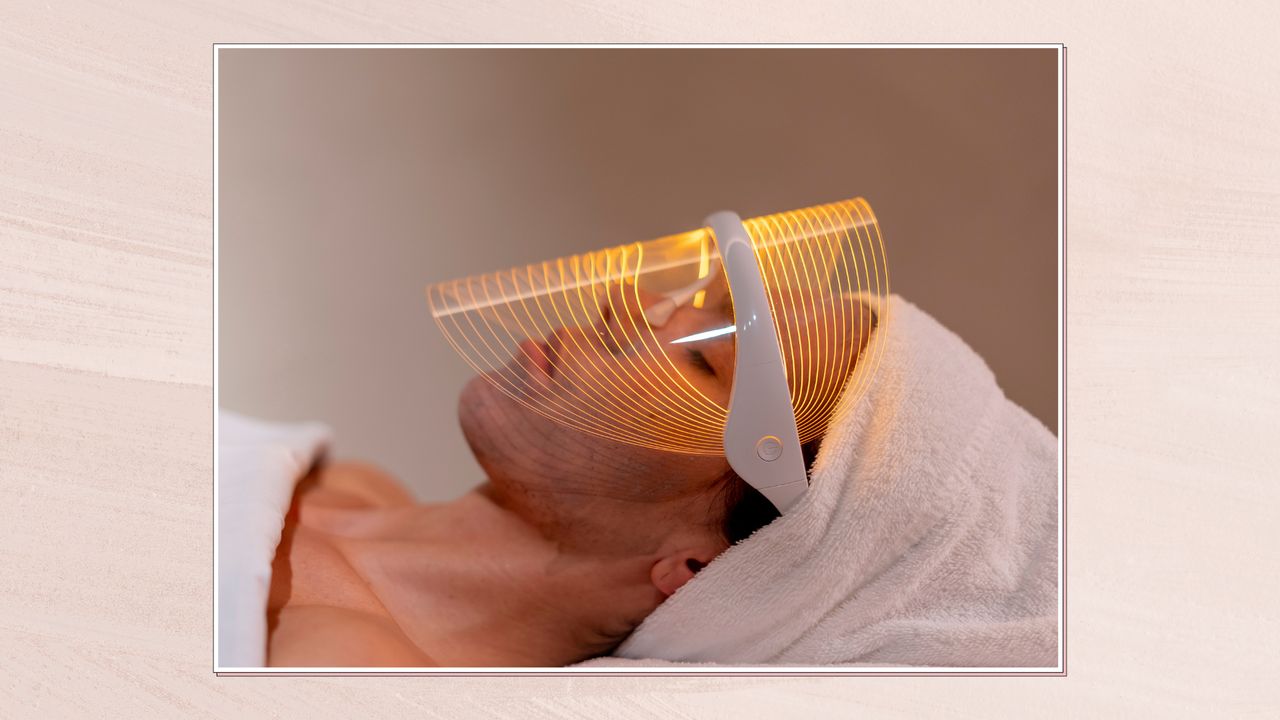Can I use an LED face mask every day? Your guide to safe and effective light therapy for radiant skin
Experts shed some light on how to get the best results from your LED face mask


LED face masks have quickly become the must-have beauty gadget, promising everything from acne-free skin to smoother lines and a lit-from-within glow. They’ve got many of us eager to slip one on every chance we get, but the big question for many of us is whether you can actually use an LED face mask every day and, should you?
Indeed, at-home tools light the best red light therapy devices and LED tools have steadily increased in popularity over the years. “Light therapy has been used for decades to heal the skin and stimulate collagen and elastin,” says oculoplastic surgeon Dr. Maryam Zamani, founder of MZ SKIN. “It’s often referred to as a ‘skin healer’ as it boosts the skin’s natural daily repair process.”
Originally developed for astronauts to help with tissue healing, today LED is as mainstream as moisturiser and is used to treat all manner of issues in the form of in-clinic treatments or through home devices. No matter your skin goals, Dr Maryam explains that, “Results will depend on the number of consecutive treatments done and the total dose of light received. Consistency is king!”
But does that mean using your LED face mask every day is the way to go for optimal skin health or is once per week sufficient for a beautifully glowy complexion? Here, the experts break it down…
Can I use an LED face mask every day? Here's what experts have to say about useage
How often can I use an LED face mask?
This answer varies depending on the tool. “It really depends on the brand and its regulatory clearance,” says Dr Zamani. “One rule doesn’t fit all, so it is best to consult each brand’s guidance on how to best treat the skin concern in question.”
Another thing to consider when determining how often to use your LED face mask is how reactive your skin is. “Using an LED face mask every day can be beneficial for some skin types, but if your skin is sensitive then using it a few times a week can be better,” adds Dr Raj Arora, an NHS GP and skin specialist. “Some masks, like FOREO’s FAQ™ 202, allow programmes with different wavelengths of LED light so it is suitable for use multiple times a week.”
Will using an LED face mask give me better results?
It’s tempting to think that popping your LED face mask on every chance you get will mean better results – but that’s not necessarily the case. “Reputable LED face masks undergo clinical trials and studies which will create a dose-dependent treatment,” says Dr. Zamani. Light therapy often has an optimal "sweet spot" and brands will give a recommended usage; sticking to that is how you’ll get the most from your beauty gadget.
Sign up for the woman&home newsletter
Sign up to our free daily email for the latest royal and entertainment news, interesting opinion, expert advice on styling and beauty trends, and no-nonsense guides to the health and wellness questions you want answered.
One of our favourites, the MZ Skin SuperCharged LightMAX LED Mask 2.0, provides maximal impact when used for 10 minutes, three to five days a week.
Can you overuse LED face masks?
While LED light therapy is known for its gentle, non-invasive benefits, it is possible to overdo it. “Too much LED light therapy may exacerbate or irritate sensitive skin,” explains Dr. Arora. “But generally, at-home light therapy devices are pretty safe to use.”
Most experts recommend starting with a few sessions per week and gradually building up based on your skin's response. If it starts to feel dry or look a bit red, it’s probably time to cut back. “Like any treatment, light therapy can have potential side effects or adverse reactions in some individuals if not used properly,” says Dr. Zamani.
Who should avoid LED face masks?
“It's essential to understand the risks and how to minimise them when considering incorporating light therapy into your beauty regime,” says Dr. Zamani. “Some medications can amplify the effects of LED light and it is best to avoid using light therapy devices in combination. In those suffering from melasma, for example, blue light used to treat acne could potentially worsen the appearance of pigmentation.”
It’s also important to take into consideration your medical history. “I recommend migraine sufferers test their LED devices as bright light can act as a trigger,” Dr. Zamani explains. “And LED devices should always be avoided in those with epilepsy. If in doubt, please consult your doctor.”
Emma North is a Beauty Writer who works for digital titles including woman&home, Woman, Woman’s Weekly, Woman’s Own, Chat and GoodtoKnow. Emma’s career in beauty journalism began with internships at publications including Vogue, Elle, The Telegraph and Glamour. She was then taken under the wing of Funmi Fetto, Contributing Beauty Editor at Vogue where Emma assisted with Funmi’s debut beauty book, Palette.
-
 'I forgive the children who took Brianna's life' - Esther Ghey's remarkable empathy is an example to us all
'I forgive the children who took Brianna's life' - Esther Ghey's remarkable empathy is an example to us allIn the wake of her daughter's murder, Esther Ghey offers extraordinary forgiveness and calls for change
By Lucy Wigley Published
-
 The Madame Blanc Mysteries puts midlife relationships front and centre - we need more of that on TV
The Madame Blanc Mysteries puts midlife relationships front and centre - we need more of that on TVThe Madame Blanc Mysteries perfectly demonstrates what authentic midlife romance should look like
By Lucy Wigley Published
